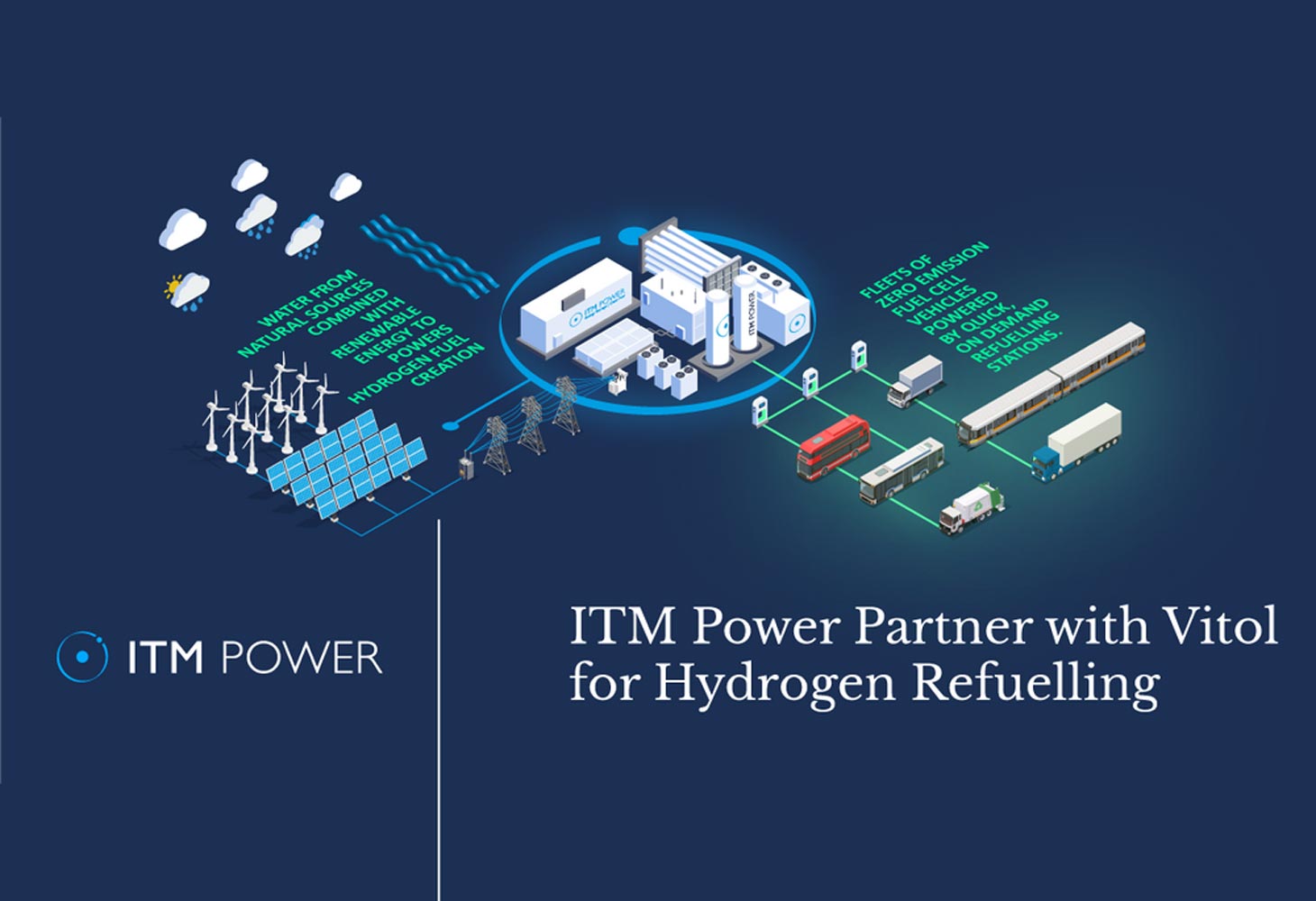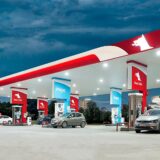
Vitol invests in ITM Power’s hydrogen refuelling business
Vitol, an energy and commodities company based in Geneva, Switzerland, has agreed to acquire 50% of ITM Power’s hydrogen refuelling subsidiary, ITM Motive Limited. Vitol has committed to investing an initial GBP30 million (USD39.7 million) in Motive, with ITM Power committing a similar sum.
The partners intend to build Motive into a pan-European hydrogen refuelling company. Starting in the UK and expanding across Europe, Motive’s refuelling network will sell green hydrogen produced by ITM Power’s market-leading electrolyser technology. ITM Power will be the preferred supplier of energy services to Motive; it has committed 240 MW of electrolyser manufacturing capacity to the initiative.
The partners initially expect the service to be mostly used by heavy-good vehicles (HGVs) as corporations seek to reduce their carbon footprint and local and national governments look to address emissions and urban air pollution.
“Vitol aims to be at the heart of the energy transition. Hydrogen has a key role to play in decarbonising transport and ITM Power’s leading proprietary Gigastack electrolysers can produce green hydrogen at scale and cost efficiently. Our partnership will enable us to build Motive into a gas-for-transport company for the future, complementing our other sustainable transport initiatives, from LNG/biogas network Liquind, through to fleet EV solutions,” said Chris Bake, head of origination for Vitol.
Last year, Vitol invested USD50 million in India’s electric mobility firm SUN Mobility to facilitate its expansion across its core market of India and further afield, including markets where Vitol has a presence. With the investment from Vitol, SUN Mobility said “we plan to expand our footprint to all major cities. We plan to install 500 SWAP Points in India by the end of 2022.”
SUN Mobility has developed a cost effective and durable solution for the electrification of fleet and livelihood vehicles, such as three-wheeler, two-wheelers, taxis and cargo vehicles, in India and other emerging markets. Its battery swapping system allows for a lower total cost of ownership relative to the combustion engine and fixed battery alternatives.










